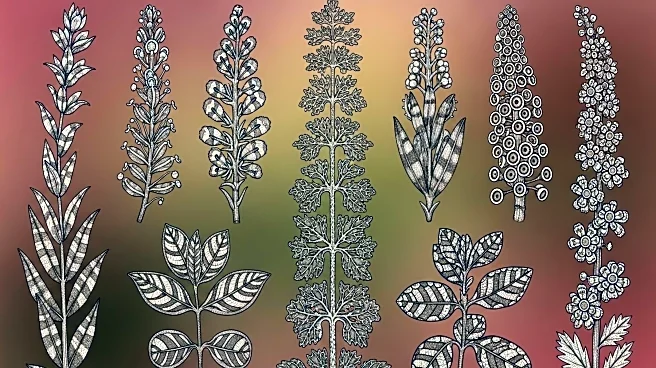What's Happening?
A comprehensive study has mined 599 plant genome sequences, identifying 2,068 unique oxidosqualene cyclase (OSC) genes across 258 species. This research, involving a detailed computational workflow, has resulted in the classification of 1,405 high-quality OSC sequences. The study highlights the evolutionary diversity of OSCs, which are crucial for the biosynthesis of triterpenes, compounds with significant ecological and pharmaceutical importance. The research also involved functional analysis of selected OSC sequences, revealing new insights into their roles and diversification across plant species.
Why It's Important?
The discovery of diverse OSC genes across plant species has significant implications for biotechnology and pharmaceuticals. Triterpenes, the products of OSCs, have various applications, including anti-inflammatory and anti-cancer properties. Understanding the genetic basis of OSC diversity can lead to the development of new plant-based compounds for medical use. Additionally, this research enhances our understanding of plant evolution and adaptation, potentially informing conservation strategies and agricultural practices.
Beyond the Headlines
The study's findings could lead to ethical and legal discussions regarding the use of genetic resources from plants, especially in terms of intellectual property rights and benefit-sharing with countries of origin. Furthermore, the potential for bioprospecting raises questions about the sustainable use of biodiversity and the need for international agreements to ensure fair practices.










